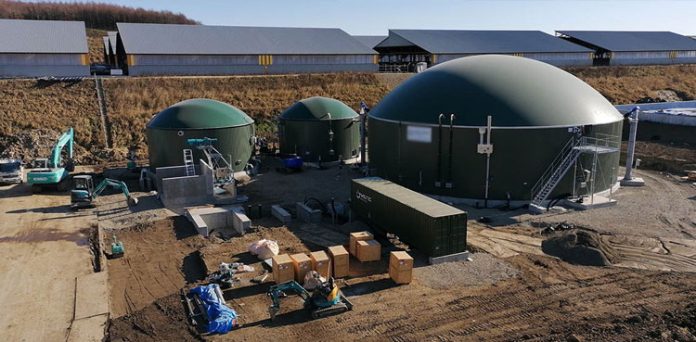In Lahore’s Gujjar Colony, Pakistan, a significant milestone was achieved with the inauguration of the country’s largest biogas facility. This state-of-the-art plant boasts a remarkable daily gas production capacity of 600 cubic meters. What sets this facility apart is its innovative approach to waste management and sustainable energy production.
Every day, the plant will process 1,600 kilograms of dung, a common waste material often found littering roads and posing environmental and health hazards. By harnessing this abundant resource, the facility will produce a substantial 16,000 kilograms of organic fertilizer daily. This process not only tackles the issue of waste management but also transforms it into a valuable resource for agricultural purposes.
One of the key beneficiaries of this organic fertilizer will be the Parks and Horticultural Authority (PHA), which can utilize it to enhance green spaces and promote sustainable landscaping practices. Local farmers will also benefit from access to this nutrient-rich fertilizer, which can boost crop yields and improve soil health.
The surplus organic fertilizer will be made available for sale to the public, creating a sustainable revenue stream for PHA. This not only reduces the burden on public funds but also promotes a circular economy where waste is transformed into valuable products.
During the inauguration ceremony, Caretaker Punjab Chief Minister Mohsin Naqvi highlighted the significance of this initiative in addressing environmental challenges while fostering economic opportunities. He emphasized the importance of collaborative efforts between government agencies and local communities to ensure the success and sustainability of such projects.
The event was attended by Provincial Caretaker Minister Bilal Afzal and officials from various government departments, underscoring the collective commitment to promoting sustainable development and environmental stewardship.
Looking ahead, Naqvi proposed the implementation of an extension project for the biogas plant, demonstrating a proactive approach towards maximizing its benefits for local residents. This forward-thinking strategy reflects a broader commitment to harnessing renewable energy sources and promoting sustainable practices for a greener and more prosperous future.


